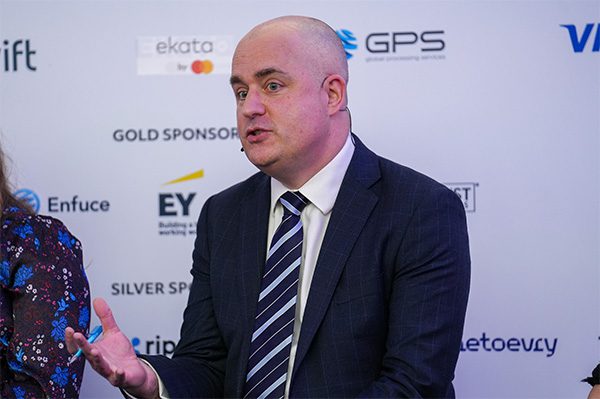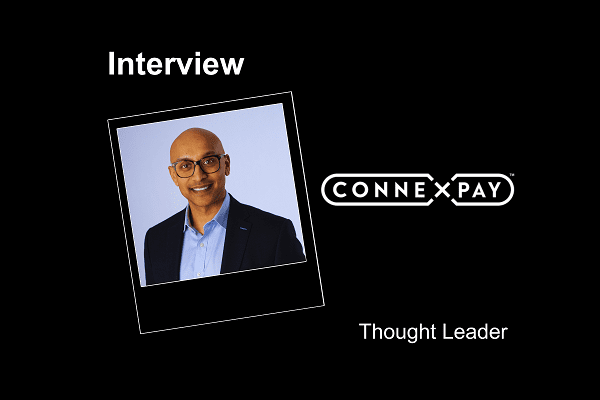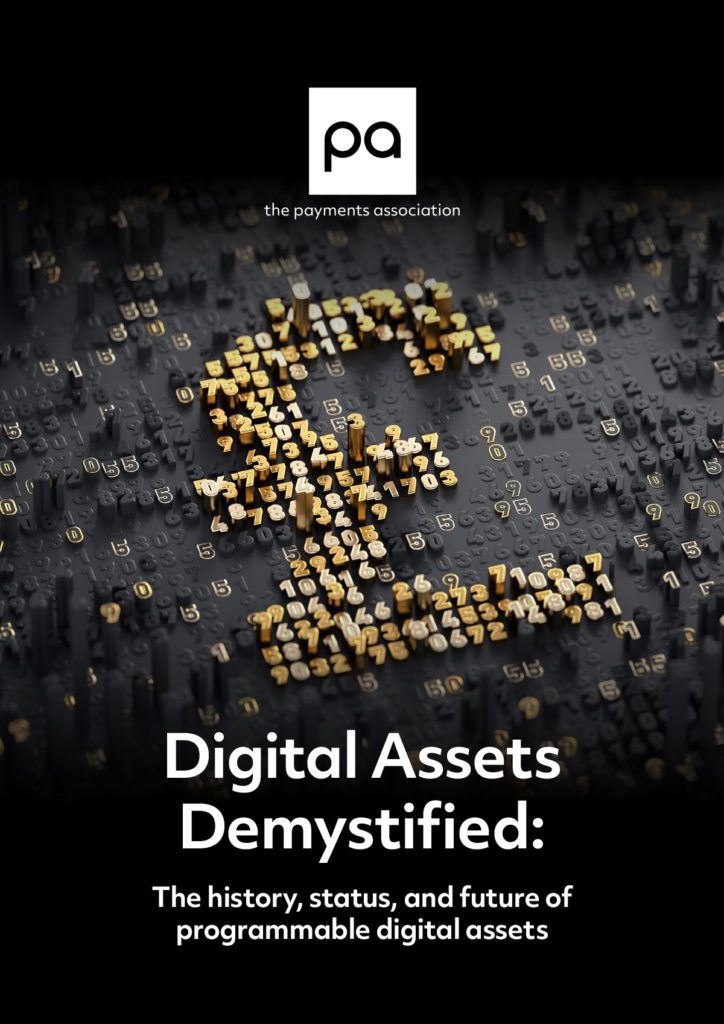
How augmented reality is shaking up ecommerce
Monica Eaton explores how augmented reality is used in the marketplace and what impact it might have on the payments industry.

Monica Eaton explores how augmented reality is used in the marketplace and what impact it might have on the payments industry.

This article was originally published by leading bank orchestration platform Numeral and recently featured in the Payments:Unpacked newsletter from Mike Chambers – subscribe for free at: www.payments-unpacked.com.

FIS senior sales executive Julien Farley discusses why he believes that the payment industry should adopt a more open-minded approach to the different payment methods that are used worldwide.

Chargebacks are a pain point for merchants which can sap revenue, cause reputational damage and in extreme cases lead to the loss of processing privilege. Yet their existence underpins consumers’ confidence in using their cards, providing recourse against fraud and unscrupulous sellers.

With uncertainty over the future of regulating BNPL products, Payments Review examined the current status, the impact of any legislation and what protection three of the UK’s largest providers have in place.

With the recent release of the Bank of England’s consultation paper on its roadmap for real-time gross settlement service beyond 2024, Payments Review examines the potential new features in store and the challenges in implementing them.

It will make millions of us redundant. It will turn whole industries upside down. It might even lead to the obliteration of humanity, and its replacement with something smarter and more civilised.

After an embarrassing scandal which saw Coutts CEO Peter Flavel and NatWest boss Alison Rose both leave their positions over the closure of Nigel Farage’s bank account, the UK banking sector may now be forced to react.

Companies spend £125 billion each year enabling people to pay and get paid securely, quickly and conveniently. The UK’s payment sector employs over 100,000 people from more than 500 companies.

From working in different countries to tackling the sector’s diversity problem, Sundeep Kaur, regional leader for global financial services at AWS, speaks to Jyoti Rambhai about the trends and challenges in payments.

The current economic climate is making first-party fraud – also known as friendly fraud – more appealing to those struggling financially. Sarah Jordan and Stephanie Kattah examine the challenges facing

Answer Pay’s Peter Cornforth examines the significance of Request to Pay alongside CoP, highlighting their combined role in meeting regulatory demands and fortifying payment security.

Open-source software (OSS) has arrived in the world of payments. Roberto Rivero, advisor at Lerex Technology, explains the benefits of OSS over in-house developments and commercial (or closed source) software.

Delivering excellent customer support can be a significant differentiator for fintech companies. In the digital age, where customers are expecting instant and effective support, a great customer experience can set

Chargebacks911’s Monica Eaton examines five ways how businesses can utilise bots and new technology to drive sales online.

Artificial intelligence (AI) has already had a transformative affect on the payments industry, particularly in bolstering antifraud efforts. Next in bosses’ sights are initiatives enhancing their customers’ experience.

How the sector can empower consumers to choose eco-friendly payment options

It started with Silicon Valley Bank (SVB), crossed the Atlantic for the final downfall of Credit Suisse, and then switched back to California with the demise of Federal Republic.

Embedded finance is changing the face of the fintech and payments industries, with transactions projected to exceed US$7 trillion by 2026, but the real winners will be small businesses.

With over 20 years in the payments sector, Jonny Griffith, head of partnerships at BVNK, speaks to Jyoti Rambhai about his experience and the challenges facing the industry.

Other UK banks also reporting higher than expected pre-tax profits for Q1 2023

Financial institutions must collaborate and see the bigger picture to prevent fraudsters taking advantage of the fragmented payments sector.

Charles Radclyffe explores why technology might not be the universal force for good it has always assumed to be and why the sector should be thinking about technology governance to mitigate and manage potential harms.

With the rapid pace of innovation in the cryptoasset ecosystem, Ricardo Tordera discusses why regulation is now more paramount than ever and not just in the UK.

Open finance provider Salt Edge delves into the challenges facing the iGaming sector and how technology could help improve customer experience, increase security and bring in new revenue streams.

Chris Hemsley, managing director of the Payment Services Regulator (PSR), says the watchdog’s plan will be published by the end of June 2023.

The Payments Association’s Tony Craddock sits down with FIS to discuss how the threat of a recession is driving a need for quicker and easier access to cash for organisations.

ConnexPay’s Anant Patel, president of international markets, discusses the future of payments, highlighting the potential of virtual cards to provide multiple efficiencies and cost savings, while increasing security, reducing fraud

Paymentology’s Martin Heraghty explores how the lending landscape is changing and what this means for consumers.

Peter Harmston and Robert Dean at KPMG UK explore how AI can be adopted to have the biggest benefits for both business and customers.

Nikulipe’s Frank Breuss discusses the correlation between a country’s GDP and its accessibility to digital financial services, which suggests fintechs are key to financial inclusion in emerging markets.

How businesses can accept bitcoin without accepting bitcoin.

Should payment firms be limited in how they reuse data or are the laws based on GDPR sufficient?

Financial columnist Matthew Lynn discusses how digital IDs could open up market competition.

Self-proclaimed payments geek, Dan Baker, head of payment rails product at J.P. Morgan, speaks to The Payments Association’s Kate McKenzie about the evolving payments landscape.

As the regulatory landscape continues to evolve, is innovation at risk in the fintech space?

Luke Cutajar, director of customer success at Ripple, fell into the payments sector 17 years ago after landing a role at American Express when he left university in Brighton. Specialising in foreign exchange services initially, Luke speaks to The Payment Association’s editor Jyoti Rambhai about building his payments career.

The UK’s financial watchdog has warned that e-money firms must undertake a “significant shift in culture and behaviour” if it is to comply with the new Consumer Duty rules, due to come into force in July.

The Payments Association’s Riccardo Tordera and Robert Courtneidge examine what the latest government consultations could mean for the UK payments sector.

With the UK government launching a second phase consultation on the future of cryptoassets, Max Savoie and Martin Dowdall of Sidley Austin examine what this means for firms.

The Payments Association’s Project Digital Currencies team has released a report to provide valuable insights into the world of programmable digital assets. It proposes seven conclusions that will help guide

The fintech industry is celebrating International Women’s Day in March. This year’s theme is ‘embracing equity’. It’s no secret, however, that the fintech industry has a diversity problem that needs

With decreased payment volumes and increased risks of market consolidation, The Payment Association examines how a recession could reshape the industry.

With Apple and Google already laying the foundations for biometric acceptance, the drive behind its adoption now comes from consumer demand for fast, secure and accurate ways to pay.

With myths on digital currencies being a threat to financial freedom dominating social media, Dominika Duziak, of OneStep Financial, explains why government must address this narrative and discuss its advantages.

Rowenna is sharing her story about how she (nearly) got scammed in the hope that it might help others and to assuage her “total embarrassment by doing something positive”. UK

Gen Z, or the iGeneration, values convenience, speed, and security in their payment methods. As they gain financial independence and spending power, their choices will influence the next few decades

Phil Mochan from Nomos Digital examines how cross-border payments is closely intertwined with cross-border liquidity and the challenges this poses for implementing CBDCs.
The Payments Association
St Clement’s House
27 Clements Lane
London EC4N 7AE
© Copyright 2024 The Payments Association. All Rights Reserved. The Payments Association is the trading name of Emerging Payments Ventures Limited.
Emerging Ventures Limited t/a The Payments Association; Registered in England and Wales, Company Number 06672728; VAT no. 938829859; Registered office address St. Clement’s House, 27 Clements Lane, London, England, EC4N 7AE.







Log in to access complimentary passes or discounts and access exclusive content as part of your membership. An auto-login link will be sent directly to your email.
We use an auto-login link to ensure optimum security for your members hub. Simply enter your professional work e-mail address into the input area and you’ll receive a link to directly access your account.
Instead of using passwords, we e-mail you a link to log in to the site. This allows us to automatically verify you and apply member benefits based on your e-mail domain name.
Please click the button below which relates to the issue you’re having.
Sometimes our e-mails end up in spam. Make sure to check your spam folder for e-mails from The Payments Association
Most modern e-mail clients now separate e-mails into different tabs. For example, Outlook has an “Other” tab, and Gmail has tabs for different types of e-mails, such as promotional.
For security reasons the link will expire after 60 minutes. Try submitting the login form again and wait a few seconds for the e-mail to arrive.
The link will only work one time – once it’s been clicked, the link won’t log you in again. Instead, you’ll need to go back to the login screen and generate a new link.
Make sure you’re clicking the link on the most recent e-mail that’s been sent to you. We recommend deleting the e-mail once you’ve clicked the link.
Some security systems will automatically click on links in e-mails to check for phishing, malware, viruses and other malicious threats. If these have been clicked, it won’t work when you try to click on the link.
For security reasons, e-mail address changes can only be complete by your Member Engagement Manager. Please contact the team directly for further help.